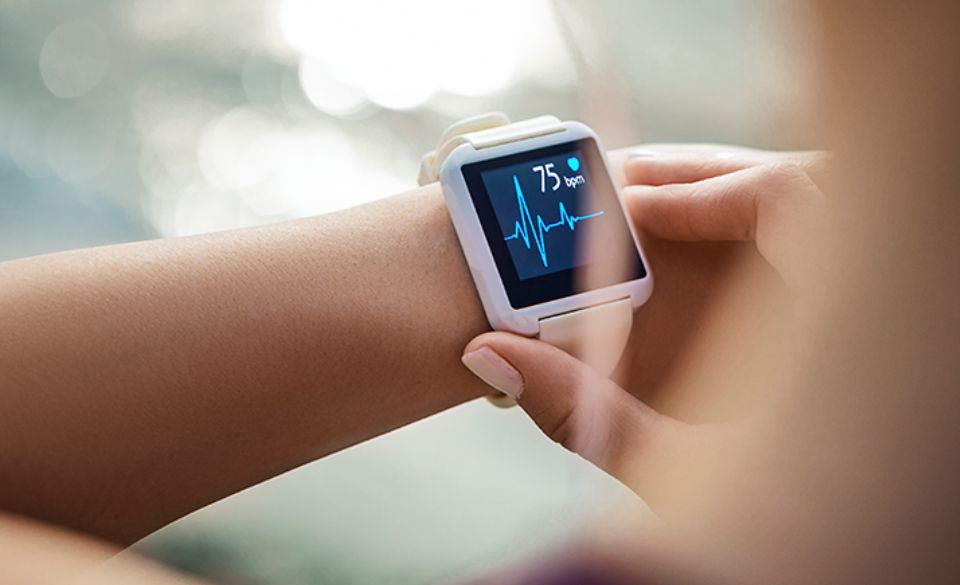
How Do Fitness Watches Track Steps
Page Contents
A fitness tracker is a wearable device designed to monitor various bodily parameters throughout the day.
To optimize its functionality, the user typically inputs personal physiological information like weight, height, and gender, enabling the tracker to better interpret the data it collects. This personalized data processing is crucial.
Most fitness trackers incorporate motion sensors, with the 3-axis accelerometer being a common choice. These sensors continuously track body movements when the device is worn and activated. As a result, the tracker can discern activities such as walking, running, or even remaining stationary.
The collected data is stored within the tracker until it’s transferred to the associated software, typically on a synced smartphone or laptop. Here, the software applies a personalized algorithm, using the user’s provided information to interpret the movements recorded.
This interpretation categorizes the movements into various activities and generates additional insights. These insights are organized under distinct headings within the fitness tracker app.
Upon accessing the app, users can find a wealth of information derived from the processed data. This information includes the number of steps taken, their speed, individual pace, and an estimation of calories burned. The app provides a user-friendly interface for interacting with this data.
How can a wearable fitness tracker be of assistance to an individual?
These devices play a significant role in enabling self-monitoring of various activities and objectives related to personal fitness. They facilitate the establishment of fitness goals, such as reaching a daily exercise target, achieving a specific calorie-burning objective, and ensuring adequate water intake.
Within the associated app, users have multiple features at their disposal. It operates as a motivational tool by visually displaying the user’s progress in relation to their set goals. The app is user-friendly and provides convenient measurements of diverse parameters.
For example, consider an individual aiming to shed five pounds in a month. The app, equipped with advanced algorithms, subdivides this goal into manageable components. It establishes daily calorie consumption targets and corresponding calorie-burning goals.
Furthermore, the app calculates the required daily exercise to reach these objectives. These daily targets are readily accessible through a simple swipe on the smartphone.
By consistently meeting these targets, individuals can effectively work towards their weight loss goals. The constant ability to monitor goal achievement serves as a potent motivator for those engaged in the weight loss journey.
Moreover, the capacity to share progress on social media platforms through the app fosters positive attention and feedback from friends and family, further encouraging individuals to remain dedicated until they attain their objectives.
How do wearable fitness trackers contribute to scientific research?
Fitness trackers worn by individuals have the potential to greatly enhance research studies conducted on a larger scale. Laboratories have limitations when it comes to the number of participants they can monitor. Wearable fitness trackers provide researchers with access to a more extensive pool of data from a larger participant group.
The alternative would involve relying on clinical interviews or subjective activity logs maintained by volunteers. This information might be less precise for analysis compared to data directly obtained from fitness trackers.
The automated nature of data collection facilitated by fitness trackers significantly expedites the research process. Although fitness trackers employing sensors may introduce some margin of error, they can still revolutionize the way scientific fitness studies are conducted. Before deploying these trackers in formal experimental studies, it is essential to validate and assess their reliability, considering that a certain level of error is inherent in any scientific investigation.
Do fitness watches track steps accurately?
Fitness watches are generally designed to track steps accurately. These devices use built-in sensors, such as accelerometers and gyroscopes, to measure and record your movements. While they may not be 100% precise in every situation, they are typically quite accurate for counting steps during activities like walking and running. However, factors like device placement, sensitivity, and user-specific differences can affect accuracy. For the most reliable results, it’s essential to wear your fitness watch correctly, following the manufacturer’s guidelines, and calibrate it if necessary.
Do phones count steps accurately?
Phones can count steps fairly accurately, but the accuracy may vary depending on several factors. Many modern smartphones have built-in accelerometers and other sensors that can track your steps and estimate your physical activity. However, the accuracy of step counting on phones can be influenced by factors such as:
1. Sensor quality: The quality and sensitivity of the sensors in your phone can impact accuracy. High-end smartphones with advanced sensors may provide more precise step counts.
2. Placement: The way you carry your phone can affect accuracy. Carrying it in your pocket, hand, or a secure armband may yield better results than holding it loosely or placing it in a bag.
3. Phone settings: Some phones allow you to calibrate the step counting feature or adjust sensitivity settings, which can improve accuracy.
4. App or software: The step counting app or software you use can also affect accuracy. Some apps may be more precise and provide better calibration options.
5. User movement: Your walking or running style and gait may impact accuracy. For instance, some phones may not count steps accurately during activities like cycling or weightlifting.
In summary, phones can provide relatively accurate step counts, especially for activities like walking and running, but the accuracy can vary based on phone model, sensor quality, user behavior, and app settings. If step counting accuracy is crucial for you, consider using dedicated fitness trackers or wearables designed specifically for this purpose.
Final Words – How Do Fitness Watches Track Steps
In conclusion, fitness trackers, like wearable devices, play a significant role in assisting individuals with self-monitoring their physical activities and fitness objectives. They enable the establishment of personalized goals, such as daily exercise targets, calorie-burning goals, and hydration goals, helping users stay on track with their health and fitness ambitions.
These trackers come equipped with user-friendly apps that provide clear visual feedback on an individual’s progress toward their set goals. This visual feedback acts as a motivating tool, driving users to achieve their targets effectively. The convenience and versatility of these devices make them a valuable tool in managing one’s fitness journey.
Furthermore, wearable fitness trackers have the potential to revolutionize the landscape of scientific research related to fitness and health. They provide a means to collect data on a larger scale, making it more accessible to researchers and allowing for more extensive studies. While there may be a margin of error associated with wearable trackers, their automated data collection processes and accessibility make them a game-changer for research efforts.
As for the accuracy of step tracking, both fitness watches and phones are designed to provide fairly accurate step counts. They rely on sensors to track movements and can be useful for activities like walking and running. However, factors such as sensor quality, device placement, settings, and user movements can influence their accuracy. Therefore, for the most precise results, it’s crucial to follow manufacturer guidelines, calibrate the device if necessary, and consider the specific requirements of your physical activities.



